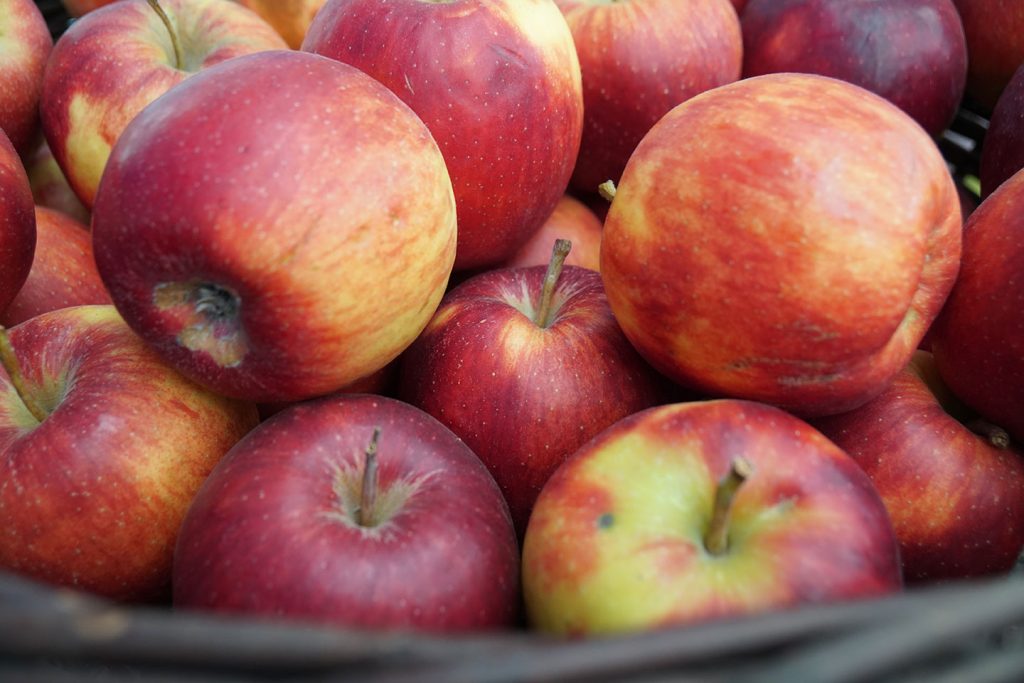Delta Food Feature: Apples
Fall in the Delta is Apple Time! From the middle of August through the first part of December, farmers in the Delta pick many varieties of fresh, sweet apples.
The apple is the philosophical and cultural heavyweight of fruit. Pears, berries and melon may be a delightful treat, but an apple a day is supposed to guarantee health. That’s a big responsibility, but nothing compared to being the reason Eve ruined the whole Garden of Eden thing by offering one to Adam. In Greek mythology, an apple started the Trojan War, and Hercules had to go pick a bucket of them as one of his Twelve Labors. Considering the other labors included killing nine-headed snakes and demonic three-headed dogs, cleaning out stables and catching man-eating horses, apparently picking apples was considered quite a chore.
Another burden the apple must bear is its biological nomenclature – Malus domestica. In Latin, malus means bad or evil – kind of an odd genus for such a delicious fruit, and one that may be the first cultivated tree in history. Etymologists attribute the name as a reference to the common depiction of Eve’s diabolical fruit as an apple, which makes no biological sense at all as the apple was completely unknown in the Middle East in Biblical times. However, the tree is described in Genesis as “the tree of knowledge of good and evil”, and in Latin “good and evil” would translate “bonum et malum.” Easy mistake.
Apples also have fascinating genetics. Several popular varieties of apples are a “triploid” crop. To put it very simply, that means that they have THREE sets of chromosomes instead of two, or four, or six. What this means for growers is that apple trees grown from seed will not necessarily reproduce the characteristics of the parent tree, since cell division can’t happen evenly with an uneven number of chromosomes. To avoid the risk of unexpected bad traits popping back up all over the place, and minimize the risk of sickly seedling trees, most commercial apples are commonly propagated by grafting. Triploid varieties also have sterile pollen, and must be cross-pollinated with fertile types in order to produce fruit. The bonus is that triploid varieties often are quite vigorous, have large fruit and can be very resistant to disease. Gravenstein, Jonagold, Winesap and Pippin are examples of popular triploid apple varieties.
BUT WE DIGRESS – there are over 7,500 known varieties of apple, and the ones most common in Delta orchards are Granny Smith, Fuji, and Gala, “diploids” all with the ordinary two sets of chromosomes. (Sorry – that triploid stuff was just INTERESTING!) Other delicious varieties that can be found this time of year in the Delta are Braeburn and Pink Lady.


